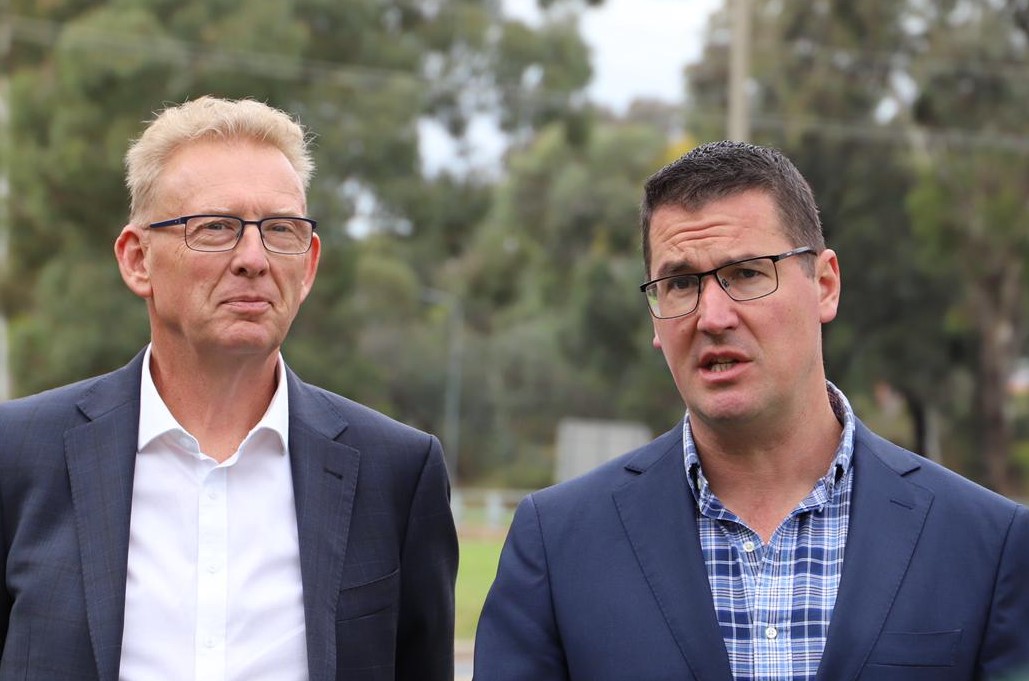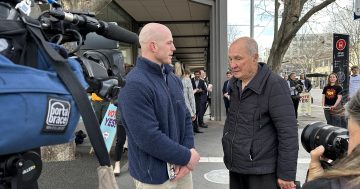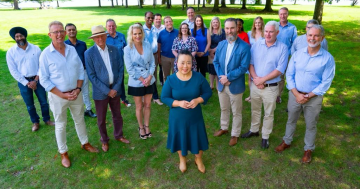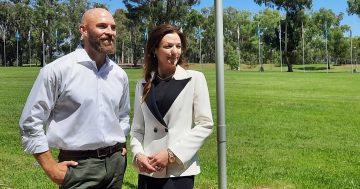
Senator David Pocock is in the driver’s seat for 2025. Who will take him on for the Liberals? Photo: James Coleman.
There are signs that some members of the Canberra Liberals are getting impatient with the lack of movement on finding candidates for the 2024 Legislative Assembly elections and the federal election due in 2025.
A motion has been placed on notice for next Tuesday’s (9 May) general meeting of the Canberra Liberals’ biggest branch, Kurrajong, aimed at providing some certainty about pre-selections and giving candidates enough time to familiarise themselves with the electorate and campaign.
It states: “The Kurrajong Branch encourage the Management Committee to consider holding Assembly and Federal Senate preselections before the end of October this year, as a sign of unity and confidence to the electorate, and to give candidates the best opportunity to build support and momentum towards Liberal victory.”
The Assembly elections are now less than 18 months away and there is no word of who might contest the poll other than sitting MLAs.
In the federal arena, the Liberals will be hoping that they can claw back their Senate seat, but with every week that goes by Independent Senator David Pocock seems more entrenched.
Senator Pocock mounted a formidable well-financed and well-resourced campaign last year based on an army of volunteers that outnumbered Liberal Party membership.
To upset him in 2025, the Liberals will need a quality candidate and time to make an impression with an electorate growing more comfortable with Senator Pocock, who has impressed so far in the role.
They will need to bring former Liberals who voted for him back to the fold.
But that will require a candidate more to the centre than the man he ousted, the right-wing Zed Sesleja, who remains a powerful force in the ACT division.
The motion also indicates that the local party remains divided or at least acknowledges that there is a perception of disunity in the electorate, something the review of the 2022 election performance noted in its report.
The review, by Helen Kroger and Dr Mike Nahan, found Mr Seselja was a strong campaigner but his stances on issues such as voluntary assisted dying and Territory rights made him vulnerable.
While the review said the Liberal Party should not abandon its core values to pursue votes in the ACT at the expense of votes elsewhere, it noted several times the need for the Canberra Liberals to engage the community on a more diverse and broad-based level.
It found that the treatment of women and a confused position on climate change were the key vote-movers in 2022, reflected in the so-called Teal movement that Senator Pocock capitalised on.
That suggests a woman candidate with a clear position on climate change and broad community connections would fit the bill, if she can be found.
The review noted the high female representation in the Assembly but recommended that the Canberra Liberals identify potential women who would be interested in becoming involved in the party, with a view to becoming a candidate.
“It is no accident that whilst our female representation is low, the female vote is low, a fact used against us with the Teal movement supporting female candidates, many who came (or claimed to come) from notionally Liberal backgrounds,” it said.
“This narrative remains a fundamental challenge not only to the Liberal Party but also to the Canberra Liberals and must be addressed head-on.
“It is critical that any incumbent candidate in the ACT reflects the population and engages the electorate in a meaningful way.”




















